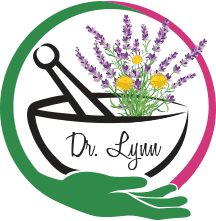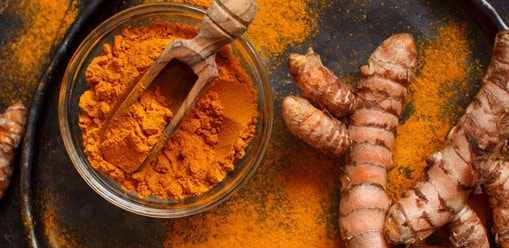The human body’s defense system uses inflammation as a weapon against foreign invaders that make their way into our bodies. Inflammation is critical part of the immune system. The immune system works to identify and eliminate harmful, unknown agents in our body to ultimately heal it. Inflammation can occur as an acute or chronic process (Chronic Inflammation).
Inflammation damages tissues and nerves, causes pain and disease. There are many causes of inflammation: injury to tissue, a foreign body in the system, irritation, toxins, undigested food, and other agents like bacteria and viruses entering the body. The body wants to get rid of these agents because it doesn’t recognize them and uses the inflammatory process to do it.
5 Classic Signs of Inflammation (The Journal of Inflammation):
- Redness
- Swelling
- Heat
- Pain
- Loss of function
You would see these signs if you accidentally hit your hand with a hammer or stepped on a nail. However, inflammation can be responsible for many diseases such as: diabetes, cardiovascular diseases, allergies, chronic obstructive pulmonary disease, and arthritis and joint diseases plus many GI conditions like ulcerative colitis among many more.
Acute Inflammation
Acute or short-term inflammation may occur when trauma, toxins, or germs damage bodily tissues. Acute inflammation starts and progresses quickly and lasts a few days. Common examples of acute inflammation include boils of the skin, cellulitis, bronchitis, and acute pneumonia. Subacute inflammation can last 2-6 weeks and marks the transition from acute to chronic inflammation (Chronic Inflammation).
Chronic Inflammation
Chronic or long-term inflammation may last many months to years. Chronic inflammatory processes are diverse and depend on the triggering agent’s nature (bacteria, viruses, toxic chemicals). An individual’s unique responses and repair capabilities also play key roles in outcomes of chronic inflammation (Chronic Inflammation).
Some Inflammation is Good
Inflammation is the first step in the defense response because it activates the immune system. When a foreign object (nail, pathogen, or undigested food) or an object inside the body is damaged (such as frayed tissue), it is called an antigen. The body is damaged in some way. Inflammation in the short term is a good thing because it helps to rid the body of germs or toxins, stops infection from spreading to the rest of the body, and helps to stop bleeding.
Inflammation in the long-term is devastating. Chronic long-term inflammation has the body in a state of constant oxidative stress. This is where tissues are hurt and torn apart over and over daily.
Tests for Inflammation
There are many tests to see if you have chronic inflammation: C-reactive protein, ferritin, red blood cell sedimentation rate (ESR), fibrinogen and homocysteine are some markers for inflammation in the body. These tests are usually run as markers for heart disease, the number one killer in America. C-reactive protein may also be run to look for inflammation in arthritis, diabetes, or infection.
Inflammation also affects the body by impacting iron levels. Iron is essential for most bodily functions and plays important roles in carrying oxygen through our bodies. Despite its importance, iron deficiency is common and seems to be exacerbated by inflammatory diets. Studies demonstrated that inflammatory diets consisting of highly processed foods led to higher levels of C-reactive protein and reduced total iron binding capacity. This indicates that inflammatory foods are associated with poor iron levels in the body and further worsen inflammation (Inflammatory diets are associated with lower total iron binding capacity in sera of young adults).
Over time inflammation causes more and more damage to tissues and organs. New research indicates that most chronic disease is caused by inflammation.
Diet-Inflammation Connection
Diets that are high in refined sugar and saturated and trans-fatty acids, that are also lacking in fiber from vegetables, whole grains, and omega-3 fatty acids may activate the immune system. This may be due to production of proinflammatory cytokines accompanied by the reduced production of anti-inflammatory cytokines. Inflammatory cytokines are main players in inflammatory diseases and can be used as biomarkers to monitor disease and adjust therapy. Common cytokines include interleukin (IL)-6, IL-1, IL-33, tumor necrosis factor-alpha (TNF-α), IL-10, and IL-8. These are involved in trauma, shock, and immune dysfunctions (Cytokines in inflammatory disease).
Inflammation in turn, is involved in atherosclerotic processes and increases inflammatory markers such as (TNF)-alpha and inflammatory interleukins. These inflammation markers increase risks of vascular events, endothelial dysfunction, and insulin resistance. These findings emphasize how Western diets trigger inflammation and metabolic disease. They also highlight that healthy food choices can help reduce inflammation and chronic disease (The effects of diet on inflammation: emphasis on the metabolic syndrome).
Toxins and How They Affect Us
Toxins can cause inflammation. Toxins can be stored in fat cells as a way for the body to protect itself from toxins hurting organs and blood vessels. However, the more toxins that are eaten or drank, the more fat the body may produce. Burning this fat releases those toxins. It is important that this be done over time and with support. The body will need to clear the toxins and the detoxification process is very important when we lose weight.
There are many additives in the diet that can cause inflammation: fake sugars, high fructose corn syrup, too much protein; artificial sweeteners and preservatives; and fried and hydrogenated fats.
The GOOD NEWS: there are many foods and herbs that can stop the inflammation process.
Studies show that fermented dairy foods lowered biomarkers of inflammation. This was seen as lower “inflammatory scores” (sum of inflammatory biomarkers) among patients whose diets contained dairy. Adding fermented dairy foods such as yogurt and cheese to individuals’ diets lowered biomarkers of inflammation compared to adding nonfermented dairy foods to the diet (Exploring the Links between Diet and Inflammation: Dairy Foods as Case Studies).
Turmeric is a highly valued spice that is used for culinary and medicinal purposes. Its active component is curcumin. Curcumin in turmeric is used in oxidative and inflammatory conditions such as diabetes and arthritis based on its antioxidant and anti-inflammatory effects (Curcumin: A Review of Its’ Effects on Human Health). Incorporating turmeric into yummy recipes allows us to enjoy its many benefits (see recipe for turmeric drink below).
Ginger is another plant that is valued for its anti-inflammatory effects when used in chronic inflammatory diseases. It works by stopping prostaglandins from exerting their inflammatory effects by interfering with the cyclooxygenase pathway (Clinical trials on pain lowering effect of ginger: A narrative review). This pathway plays a main role in inflammatory responses. Gingerol is also a compound in ginger that shows anti-inflammatory effects by interfering with inflammatory cytokine activity. Incorporating ginger into homemade drinks allows us to enjoy its many benefits (see recipe for Ginger Ale below).
6 STEPS TO DECREASE INFLAMMATION
STEP 1: STOP the causes of inflammation: infections, allergens, toxins
STEP 2: BEGIN anti-inflammatory diet
STEP 3: STRETCH and gentle exercise: can cleanse the body
STEP 4: LOSE weight. Fat can have toxins that cause inflammation
STEP 5: TAKE natural anti-inflammatory products good for the body
STEP 6: RELAXATION and quieting the mind can produce natural pain killers in the body
Foods that Cause Inflammation and that We Can Avoid
High Fructose Corn Syrup: Associations have been found between inflammatory conditions such as arthritis, gut inflammation, and intake of high fructose corn syrup. Studies suggest that regular intake of soft drinks sweetened with high-fructose corn syrup may be linked to an increased risk of rheumatoid arthritis in women (Intake of high-fructose corn syrup sweetened soft drinks, fruit drinks and apple juice is associated with prevalent arthritis in US adults, aged 20–30 years). Possible underlying reasons for this may be fructose malabsorption and subsequent inflammation as our bodies try to handle these additives. The bright side is that we can educate ourselves by reading food labels and opting for naturally sweetened teas or lemonades using cane sugar or agave syrup instead of sodas.
Trans fats: These fats include partially hydrogenated vegetable oils present in foods we probably love to eat such as cakes, fries, and deep-fried foods like fast food. Intake of these fats is associated with increased risks of cardiovascular disease, diabetes, and other inflammatory conditions given that they increase systemic inflammation in our bodies (The relationship of plasma Trans fatty acids with dietary inflammatory index among US adults). Thankfully, we can improve our diets and counteract inflammation brought upon us by prepping home-cooked meals that include scrumptious vegetables and whole organic foods such as organic chicken breast.
MSG (Monosodium glutamate): MSG is commonly used to make foods more savory. Its use has been associated with chronic inflammation and studies in mice have shown that MSG injections caused significant inflammation, central obesity, type 2 diabetes, steatosis (fatty liver), and steatohepatitis. These conditions are similar to nonalcoholic fatty liver disease in humans and may be associated with MSG intake (Monosodium glutamate (MSG): A villain and promoter of liver inflammation and dysplasia). It would be a good idea to inspect food labels for MSG before consuming them and enjoying foods that are naturally flavored such as with onions, garlic, pepper, and celery. A good salad dressing recipe that we can add to our meals is listed below.
ANTI-INFLAMATORY DIET
Challenge: For just one week we would like you to try to eat a certain way and take care of yourself
Breakfast:
- Eat all the fresh uncooked fruit you would like. DO NOT mix melons with other fruits.
- JUICE: Buy a juicer and juice Pineapple and grapefruit—two natural anti-inflammatory fruits.
- If you are hungry take a few raw nuts: brazil, cashews, pecans or almonds
- TAKE 2 Bromelain tablets
- Mid-Morning: Ginger ale or take 2 turmeric tablets
Lunch:
- Salad with as many fresh, uncooked vegetables
- Fruit
- Brown rice or baked potato with REAL, organic butter
- Lemonade
- TAKE 2 Bromelain tablets
Dinner:
- Salad with as many fresh, uncooked vegetables
- Fruit
- Brown rice or baked potato with REAL, organic butter
- Lemonade
- Take 2 Bromelain tablets
- Turmeric drink or take 2 turmeric tablets at bedtime
Salad Dressing
- Olive oil
- Lemon juice
- Fresh chopped basil
- Fresh chopped garlic
- Fresh chopped oregano
- Flavor with Braggs amino acids
Ginger Ale
Peel 1” of ginger and place in blender with 1/3 cup of filtered water. BLEND on high for 10 seconds. STRAIN liquid. Use ½ of liquid per drink (place unused in refrigerator); sweeten to taste (2-3 teaspoonfuls of Agave syrup) and sparkling mineral water.
Turmeric Drink
Heat 1 cup of unsweetened nut milk with ¼ teaspoonful of powdered turmeric and sweeten to taste (2-3 teaspoonfuls of agave syrup)


Recent Comments